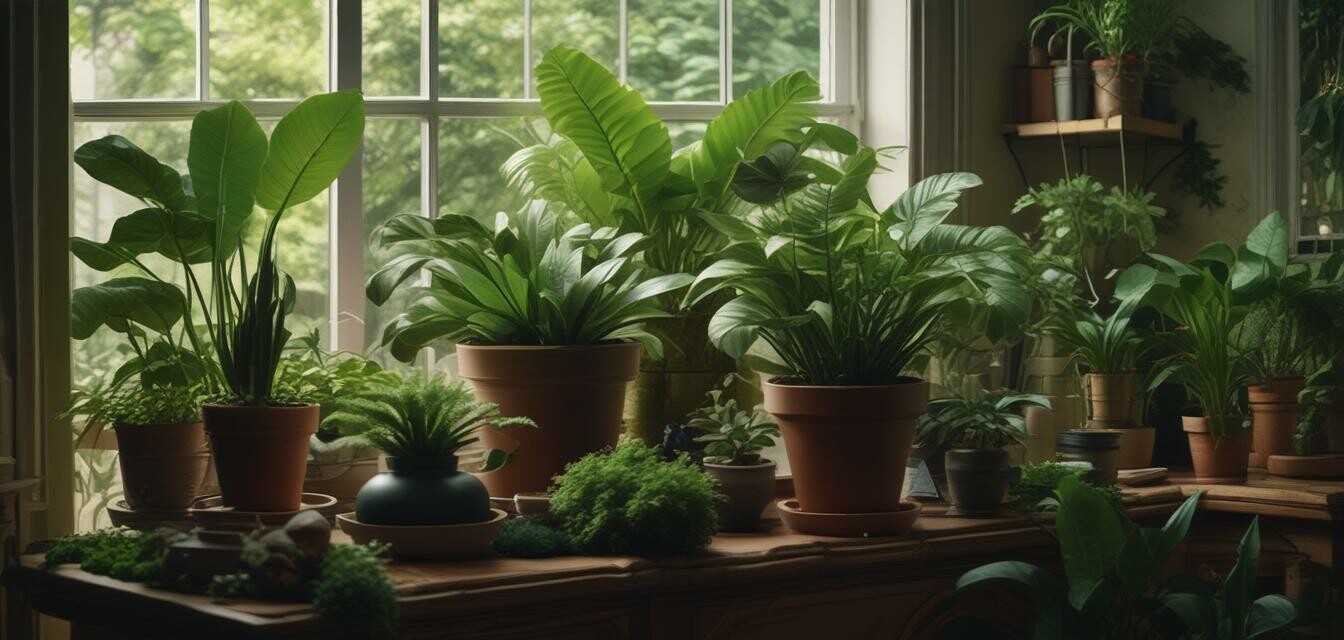
The Importance of Humidity for Houseplants
Key Takeaways
- Humidity affects plant health, growth rate, and pest resistance.
- Indoor humidity levels should ideally range between 40% to 60%.
- Effective ways to increase humidity include grouping plants, using humidity trays, and utilizing humidifiers.
- Monitoring your plants' response can help you adjust humidity levels appropriately.
As a plant enthusiast, understanding the environmental needs of your houseplants is essential. Among various factors, humidity plays a crucial role in the overall health and vitality of your indoor greenery. This article will explore why humidity is important for houseplants and provide practical tips for maintaining adequate humidity levels, especially during dry months.
Why is humidity important for houseplants?
Humidity refers to the amount of moisture present in the air. It can significantly impact a plant’s growth and well-being. Here are some reasons why maintaining proper humidity levels is vital:
- Water absorption: High humidity levels facilitate better water absorption through the plants’ leaves.
- Preventing dehydration: Low humidity can lead to dehydration, causing leaf curling and browning.
- Fostering growth: Plants in higher humidity tend to grow faster and produce healthier foliage.
- Pest resistance: Adequate humidity can deter pests from afflicting your plants.
Ideal humidity levels for houseplants
The ideal humidity levels for most houseplants range between 40% to 60%. However, this can vary depending on the type of plants you are growing. Here’s a quick breakdown:
| Plant Type | Ideal Humidity Range |
|---|---|
| Tropical Plants | 60% - 80% |
| Succulents and Cacti | 30% - 50% |
| Orchids | 50% - 70% |
How to increase humidity for your houseplants
During dry months, you may need to take extra steps to raise humidity levels for your plants. Here are some effective ways to increase the humidity:
- Group your plants: Placing plants close together creates a microenvironment with elevated humidity due to transpiration.
- Use humidity trays: This involves placing a tray filled with water and pebbles beneath your plants. As water evaporates, it adds moisture to the air.
- Utilize a humidifier: Invest in a small humidifier to maintain consistent humidity levels, especially in dry climates.
- Spray water: Lightly misting plants with water can temporarily increase humidity, but be cautious to avoid overdoing it.
- Choose the right location: Keep plants in naturally humid areas, such as bathrooms or kitchens, if possible.
Monitoring humidity levels
To effectively manage humidity, it's crucial to monitor levels regularly. Here are a couple of tips:
- Use a hygrometer: This device measures humidity levels in your home accurately.
- Observe your plants: Sagging or yellow leaves may indicate low humidity, while mold or fungal issues could suggest too much humidity.
Beginner's tips for maintaining humidity
- Start with a few humidity-sensitive plants to understand their needs.
- Be patient; it may take time to find the perfect balance.
- Consult resources like our Care Tips section for more guidance.
- Join plant care groups online to learn from experienced growers.
Conclusion
Humidity is a vital factor in keeping your houseplants healthy and thriving. By understanding its importance and employing effective strategies to maintain suitable levels, you can greatly enhance your indoor gardening experience. Take action today to ensure your plants receive the optimal moisture they need to flourish in their environment, and explore more on rare and exotic houseplants to elevate your collection!

